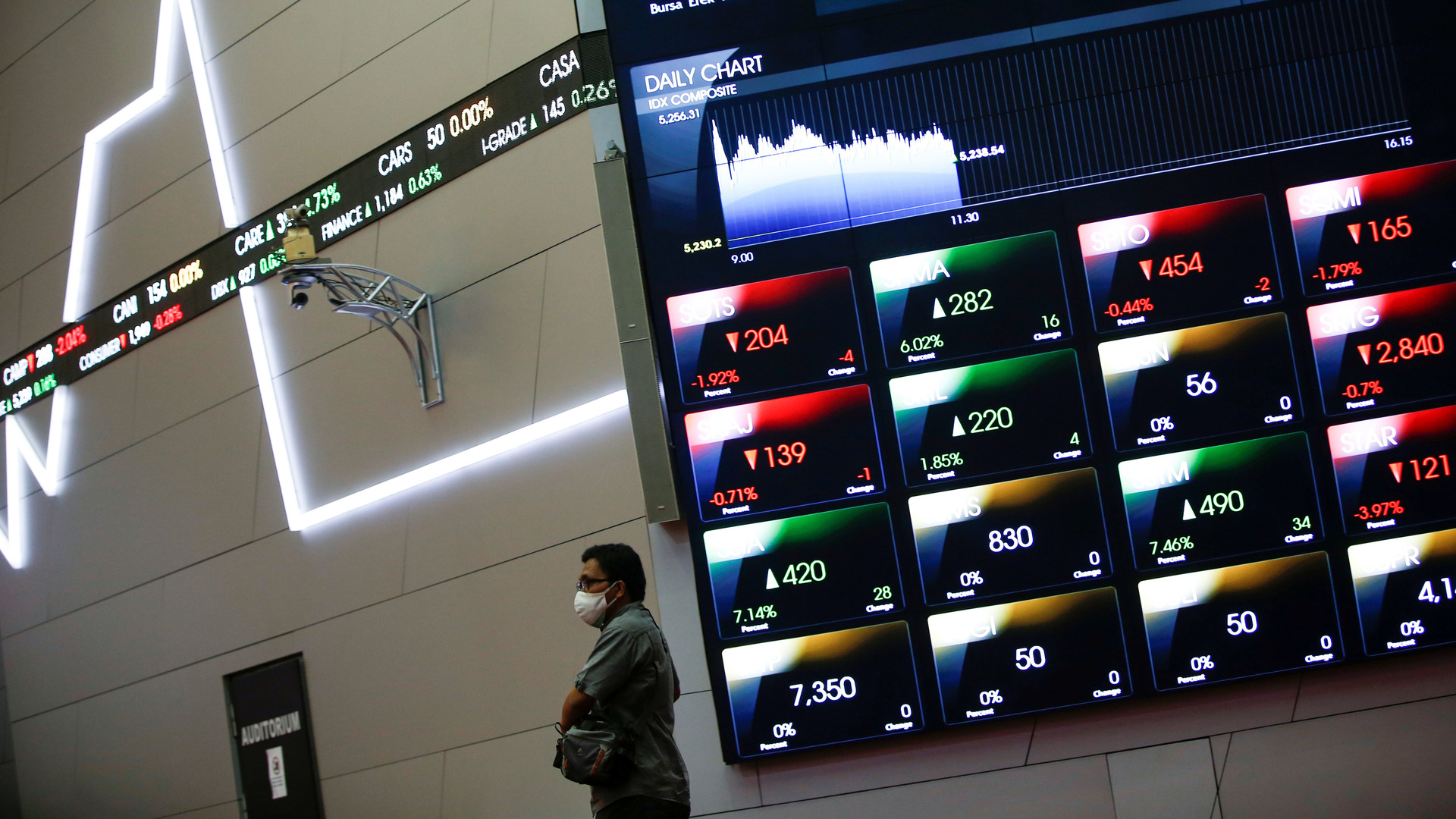On Monday, November 23rd, world oil prices showed a significant increase.
In the course of trading, the raw materials of the Brent reference grade on the ICE exchange in London rose in price by more than 2% - to $ 46.13 per barrel, quotations of the American WTI grade showed a similar growth - to $ 43.34 per barrel.
The last time such values could be observed was at the beginning of September.
In the second half of the day, the indicators slightly corrected - to $ 45.8 and $ 42.9 per barrel, but at the same time they still remained above the closing level of previous trading.
One of the reasons for the record price increase in recent months was the announcement of the Yemeni rebels from the Ansar Allah movement about an attack on the oil facilities of Saudi Arabia.
So, on the morning of November 23, they reported the shelling of the distribution station of the oil and gas company Saudi Aramco.
Recall that in September 2019, unmanned aerial vehicles blew up two Saudi Aramco oil refineries.
As a result of the attack, energy production in the kingdom fell by 5.7 million barrels per day.
Such a collapse of production in one of the largest oil-exporting countries in the world came as a complete surprise to investors.
Market players began to fear interruptions in energy supplies, and quotations began to grow.
“Last year, a missile strike against Saudi businesses resulted in a halt in the kingdom's production and double-digit increases in oil prices in just one trading session.
This time, there is also a positive reaction in prices, but further dynamics will depend on the official statements of Saudi Arabia.
If it turns out that the damage received from the attack turned out to be insignificant, the quotes may decrease slightly, "Igor Galaktionov, an expert on the stock market BCS World of Investments, told RT.
In addition, energy market participants welcomed the announcement by the pharmaceutical company AstraZeneca that it successfully tested its coronavirus vaccine.
As follows from a press release published on Monday, the effectiveness of the developed drug averaged 70%.
“For the third week in a row, Monday has pleased investors with vaccine news: first, Pfizer announced the development of the drug, then Moderna, and now AstraZeneca.
The quotes react positively in the expectation that early vaccination of people will lead to a weakening of the pandemic and the global demand for oil will start to grow again, "Ksenia Lapshina, an analyst at QBF IC, explained in a conversation with RT.
According to Igor Galaktionov, in the near future the actions of the countries participating in the OPEC + deal will influence the oil price.
Recall that since May 1, the members of the agreement have resumed their partnership and, in order to combat the global surplus of raw materials, they are reducing oil production.
The efforts of the states are aimed at restoring the balance between supply and demand of hydrocarbons in the world market, which should keep prices from another collapse.
From May to July, production of raw materials in the countries participating in the agreement decreased by a total of 9.7 million barrels per day compared to the level of October 2018.
From August to the end of 2020, the states agreed to somewhat soften the restrictions - up to 7.7 million barrels.
At the same time, from January 1, 2021, the volume of production cuts should decrease to 5.8 million barrels per day.
However, as expected, the parameters of the agreement may be revised following the results of the next meeting of the OPEC + monitoring committee.
The next meeting of the energy ministers of the countries participating in the transaction is scheduled for December 1.
“The OPEC + talks will become a key factor for the global hydrocarbon market.
The oil producers' alliance is expected to postpone the increase in production by at least three months.
Such a decision can have a restraining effect on the volume of the market supply of oil and support prices, ”Galaktionov stressed.
Reuters
© Willy Kurniawan
Note that the rise in oil prices had a positive effect on the dynamics of the Russian currency.
On Monday, the dollar rate on the Moscow Exchange fell by 0.8% - to 75.58 rubles, and the euro rate by 0.7% - to 89.72 rubles.
However, it was later corrected.
The official exchange rate of the Central Bank on November 24 was set at 75.76 rubles per dollar and 89.93 rubles per euro.
According to experts, if oil prices continue to rise, the Russian currency may further strengthen by the end of the year.
As the executive director of the capital market department at Univer Capital, Artyom Tuzov, told RT, in December the dollar exchange rate may fall to the range of 74.5-75 rubles, and the euro rate - to 89 rubles.
At the same time, Ksenia Lapshina admits the likelihood of a decline in the dollar exchange rate to 74 rubles at the end of the year.
According to her, positive news about vaccines is fueling investor interest in risky assets, including ruble ones.

